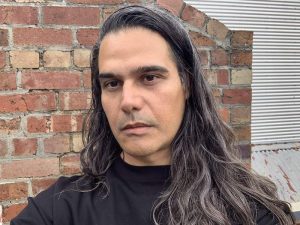Green Agenda acknowledges the traditional owners of the land where which we live and work, paying our respects to elders past and present. Justice in all its forms – social, economic and ecological – requires recognition of the prior occupation and sovereignty of Aboriginal and Torres Strait Islander peoples.
Green Agenda is an online journal and project dedicated to publishing and working with grounded forms of writing – writing by people and from places, projects, and communities, where transformative or prefigurative change is already at play, across so called Australia and the region. We work with social justice, antiracist, decolonial, and ecological commitments.
We welcome contributions by Indigenous, racialised and settler writers, researchers, artists, and activists, seeking to deepen our understanding of place, Country, ecology, democracy, politics, and justice. Green Agenda is a project of the Green Institute.
As we enter a new moment for left and ecological politics. Green Agenda hopes to play an ambitious role — inviting discussion, yes, but also helping environmental and social justice movements, party and allies to imagine and work for a collective, shared, and ecological horizon. The crisis in the authority of mainstream politics and parties gives us a real opportunity to think about and work for grounded alternatives to our economic, social, and political systems.
Green Agenda is committed the four pillars of the green movement shared by many around the world: ecological sustainability, social and economic justice, peace and nonviolence, and participatory democracy.
Green Agenda welcomes new critical and creative voices, writing from places where left political and ecological commitments are already making a difference. Green Agenda also welcomes comments and engagement with all our content. Brief comments can also be made in the comments thread! We welcome longer responses to the essays. You can submit an idea for an essay or a response to a published essay.
The views and opinions expressed on Green Agenda are those of the authors and do not necessarily represent the views, policy or positions of either the Green Institute or the Australian Greens.
Support Green Agenda by becoming a Frogi or making a donation.
Read Green Agenda‘s Terms and Conditions here.
Editor
Dr Carlos Eduardo Morreo is a writer and organiser living in Naarm/Melbourne and the current editor of Green Agenda. Carlos is a lecturer at Trinity College, University of Melbourne and previously he taught in the School of Politics and International Relations at the Australian National University in Canberra. For several years Carlos was the executive officer of the independent Institute of Postcolonial Studies (IPCS) and is part of IPCS’ Working Group. Carlos collaborates with the Elbit Out of Victoria / Weapons Out of Avalon campaign and the Latin American Solidarity Network (LASNET). He co-edited Postdevelopment in Practice: Alternatives, Economies, Ontologies (Routledge 2019) with Elise Klein.
Past editors
Dr Simon Copland received his PhD in Sociology at the Australian National University (ANU), for which studied online men’s rights groups and communities known as the ‘manosphere’. He has research expertise in masculinity, the far-right, online hate, and digital media platforms. In his spare time he is a David Bowie and sports fanatic, and volunteers for the state emergency services (SES). Simon edited Green Agenda until 2021.
Dr Felicity Gray completed her PhD at the Australian National University in the School of Regulation and Global Governance. Her current research focuses on nonviolence and intervention in conflict. She has previously worked as a policy and parliamentary adviser to Senators Christine Milne and Richard Di Natale. Felicity was the Australian Greens International Secretary.
Clare Ozich is the Chief of Staff for the Leader of the Victorian Greens, Samantha Ratnam and was the Executive Director of the Australian Institute of Employment Rights.
